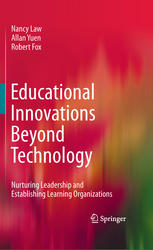

Most ebook files are in PDF format, so you can easily read them using various software such as Foxit Reader or directly on the Google Chrome browser.
Some ebook files are released by publishers in other formats such as .awz, .mobi, .epub, .fb2, etc. You may need to install specific software to read these formats on mobile/PC, such as Calibre.
Please read the tutorial at this link: https://ebookbell.com/faq
We offer FREE conversion to the popular formats you request; however, this may take some time. Therefore, right after payment, please email us, and we will try to provide the service as quickly as possible.
For some exceptional file formats or broken links (if any), please refrain from opening any disputes. Instead, email us first, and we will try to assist within a maximum of 6 hours.
EbookBell Team

4.3
58 reviewsProviding today’s students with competitive skills—information literacy, problem-solving, communications—is an ongoing challenge requiring multiple levels of classroom and administrative support. Yet many institutions commit to technology initiatives without clear long-term goals or support structures, with the result that ideas that seem worthwhile in theory have scant effect on learning outcomes. Referencing numerous case studies from developed and developing countries, Educational Innovations beyond Technology examines the successful implementation of information and communication technology (ICT), not only in terms of test scores and classroom results, but also the creative and visionary strategies and practices of teachers, administrators, and policymakers in bringing about system-wide ICT-based change. ICT is demonstrated as both a sustaining and a transformative technology, simultaneously improving and redefining educational practice in these and other salient areas: • Student and teacher roles in the ICT-supported classroom. • Pedagogical practice, technology use, and teacher competence. • Contextual conditions of innovative schools. • Challenges of sustainability and transferability. • Methods of scaling up and transferring innovative practices in varied environments. • Leadership and change mechanisms at the school and system-wide levels. The ideas and insights in Educational Innovations Beyond Technology will inspire professionals in education and related fields, including teachers and teacher educators, instructional designers and technology coordinators, principals and administrators, and education policymakers. Researchers studying educational change, comparative educational methods, and technology integration will also find much of interest in this unique volume.